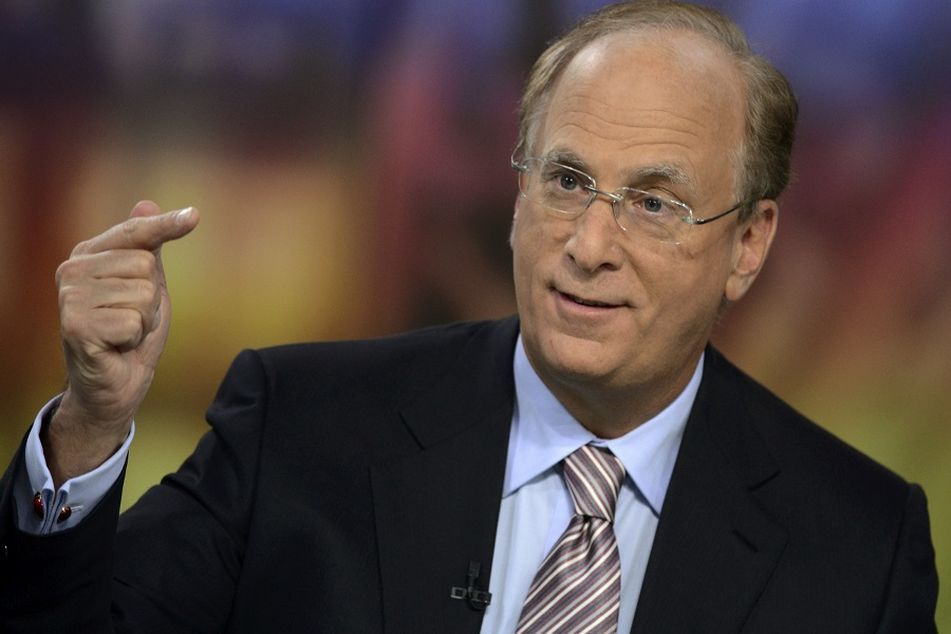BlackRock CEO Larry Fink wants better relationship with RIAs, reserves judgment on fiduciary

After another quarter beating Wall Street's profit estimates, chief executive Larry Fink says the world's largest money manager wants a better relationship with RIAs.
BlackRock Inc. chief executive officer Laurence D. Fink on Wednesday said that the world’s largest money manager hasn’t yet matched some of its competitors’ success winning the loyalty of independent financial advisers, vowing to become “a trusted partner” as its business grows.
“We are still way behind other firms, related to the RIAs,” said Mr. Fink on a conference call. “We have to become a trusted partner. There are some other firms that have a longstanding trusted relationship with these independent channels.”
Without disclosing sales figures by channel, Mr. Fink said that BlackRock has made inroads throughout its retail business this year, including with registered investment advisers. “We are very pleased with the growth we have,” he said.
That marks an improvement from just a few years ago, when the firm had “very little penetration with the RIAs,” according to Mr. Fink.
Separately, he said that it’s unclear how a proposal supported by the Obama administration to raise advice standards for retirement accounts will play out.
UPBEAT RESULTS BELIE VOLATILITY
Mr. Fink’s remarks came after he reported largely upbeat earnings results despite a volatile second quarter. During that period, which ended June 30, U.S. 10-year Treasury bond yields spiked and global stocks delivered mixed results amid questions about the future of Greece in the euro currency. (Bond yields move inversely to bond prices.)
Yet BlackRock’s retail lineup, which includes mutual funds sold in large measure by third-party financial advisers, unaffiliated broker-dealers and other intermediaries, took in $7.4 billion for the quarter in the U.S. The firm’s San Francisco-based iShares exchange-traded-fund business took in another $10.9 billion globally, New York-based BlackRock said.
ETFs have started to surpass mutual funds in retail sales. The funds are particularly popular with RIAs. In BlackRock’s case, ETF sales have also benefited from boutique portfolio managers, home-office model portfolios at large broker-dealers and strong distribution relationships, such as through wealth advisers with Bank of America Corp.’s U.S. Trust, Merrill Lynch and its Merrill Edge platform.
Yet the firm is working to expand its presence with RIAs. The firm even launched a fund with well-known independent adviser Ric Edelman this year. BlackRock-branded products had a 25% penetration in the RIA market in 2012, which has risen by a third to 33% this year. Its iShares ETFs have an 80% usage rate among RIAs, which is up three percentage points from three years ago, according to the most recent Cogent Wealth Reports’ Advisor Brandscape study.
JAPAN, EUROZONE, INDIA TOP DESITINATIONS
Among iShares’ top-selling ETFs this year are funds providing exposure to Japan, the eurozone and India, suggesting tactical uses in markets that have moved substantially this year.
But across its lineup, bonds played a major role for the firm. Eight of its top-selling funds in the U.S. are in fixed-income, including its enormously popular BlackRock Strategic Income Opportunities Fund (BASIX). That product has brought in $5.5 billion this year through June 30. The alternative bond fund is the seventh-best-selling bond fund for the year, behind more traditional offerings by Metropolitan West Asset Management, the Vanguard Group Inc., Fidelity Investments, Pacific Investment Management Co. and DoubleLine.
RISING RATE IMPACT ON BOND INVESTORS
Mr. Fink described the threat of rising interest rates to bond investors and markets as a misconception, explaining that there is a component of built-in demand for fixed income investments.
“More and more money is going into defined-contribution plans, and more and more defined-contribution plans are using target-date types of structures,” said Mr. Fink. “As you age, you’re going to have a higher component of fixed income.”
Asked about a proposal by the Labor Department that would raise investment advice standards for retirement accounts to a fiduciary level, Mr. Fink said he would be able to say “in the coming quarters” how such a proposal will affect his firm. The public comment period for the proposal ends on July 21.
Retirement savings are a major source of the firm’s $4.7 trillion in assets under management. The mutual fund industry’s trade group, the Investment Company Institute, and many of the retail broker-dealers that BlackRock sells through have fought the proposal.
“I don’t believe we have enough information on how this will all play out,” Mr. Fink said. “On the surface, it has impact on BlackRock if it is as it is today because it has impact on some of our distribution platforms, but we’ll be able to navigate that.”
BlackRock’s adjusted earnings for the quarter, $4.96 per share, beat analysts’ estimates for the seventh quarter in a row. BlackRock stock (BLK) was trading up a third of a percent on Wednesday morning at $343.90. So far this year the price is down 3.8%.
Learn more about reprints and licensing for this article.




